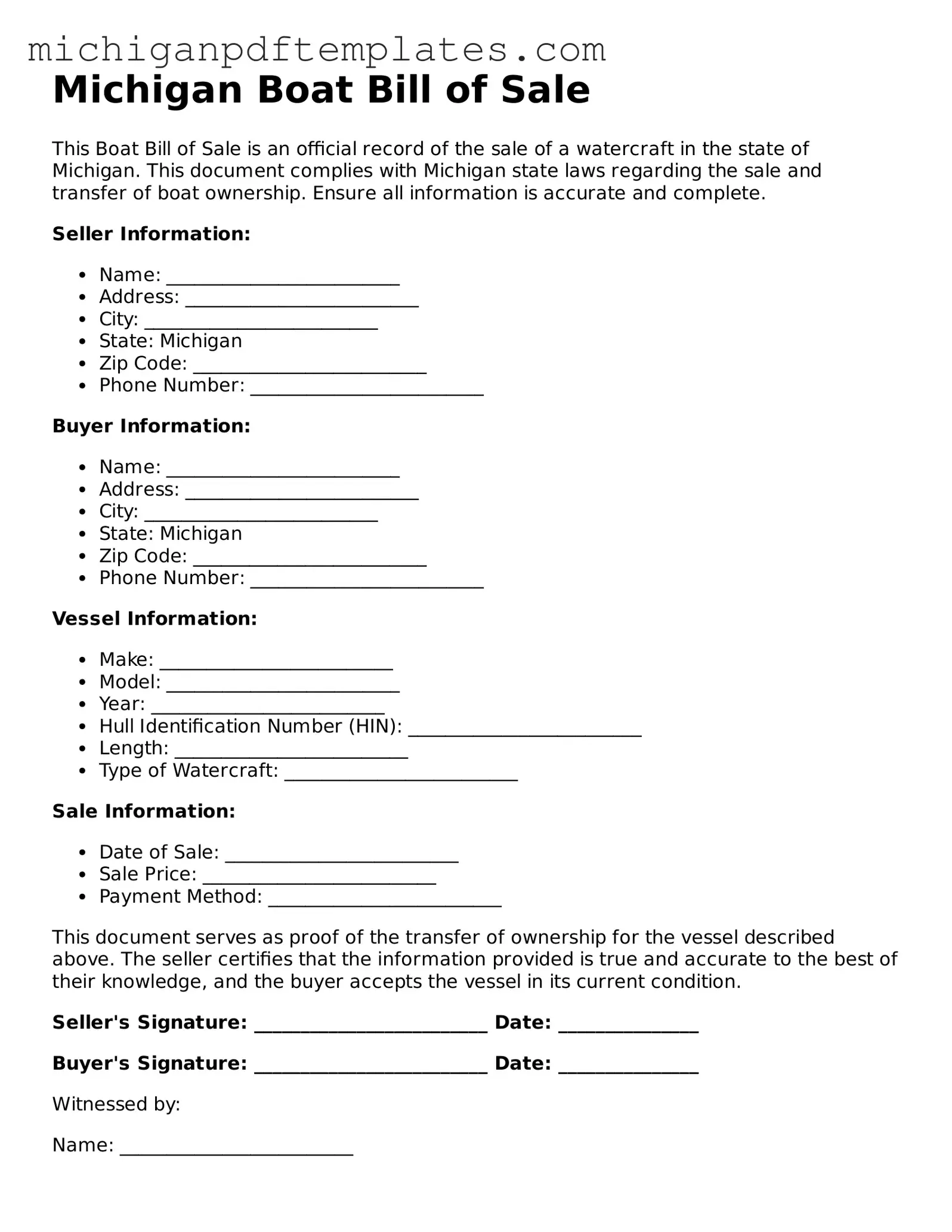Legal Michigan Boat Bill of Sale Template
The Michigan Boat Bill of Sale form is a crucial document that serves as proof of ownership when buying or selling a boat in Michigan. This form outlines essential details about the transaction, including the buyer, seller, and the boat itself. Ensuring you have this form completed accurately can help protect both parties involved in the sale.
Ready to fill out your Michigan Boat Bill of Sale? Click the button below to get started!
Get Your Form Now

Legal Michigan Boat Bill of Sale Template
Get Your Form Now

Get Your Form Now
or
▼ PDF Form
Finish this form quickly and move on
Fill in and complete Boat Bill of Sale online quickly.